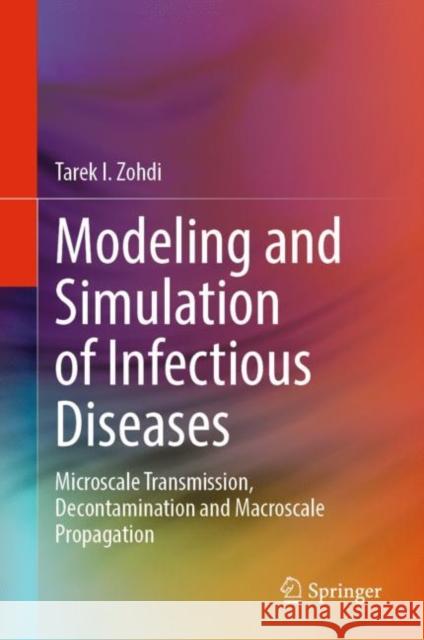Modeling and Simulation of Infectious Diseases: Microscale Transmission, Decontamination and Macroscale Propagation » książka
Modeling and Simulation of Infectious Diseases: Microscale Transmission, Decontamination and Macroscale Propagation
ISBN-13: 9783031180521 / Angielski / Twarda / 2023 / 111 str.
Modeling and Simulation of Infectious Diseases: Microscale Transmission, Decontamination and Macroscale Propagation
ISBN-13: 9783031180521 / Angielski / Twarda / 2023 / 111 str.
(netto: 535,46 VAT: 5%)
Najniższa cena z 30 dni: 539,74
ok. 22 dni roboczych.
Darmowa dostawa!
The COVID-19 pandemic that started in 2019-2020 has led to a gigantic increase in modeling and simulation of infectious diseases. There are numerous topics associated with this epoch-changing event, such as (a) disease propagation, (b) transmission, (c) decontamination, and (d) vaccines. This is an evolving field. The targeted objective of this book is to expose researchers to key topics in this area, in a very concise manner. The topics selected for discussion have evolved with the progression of the pandemic. Beyond the introductory chapter on basic mathematics, optimization, and machine learning, the book covers four themes in modeling and simulation infectious diseases, specifically:Part 1: Macroscale disease propagation,Part 2: Microscale disease transmission and ventilation system design,Part 3: Ultraviolet viral decontamination, andPart 4: Vaccine design and immune response.It is important to emphasize that the rapid speed at which the simulations operate makes the presented computational tools easily deployable as digital twins, i.e., digital replicas of complex systems that can be inexpensively and safely optimized in a virtual setting and then used in the physical world afterward, thus reducing the costs of experiments and also accelerating development of new technologies.
The COVID-19 pandemic that started in 2019-2020 has led to a gigantic increase in modeling and simulation of infectious diseases. There are numerous topics associated with this epoch-changing event, such as (a) disease propagation, (b) transmission, (c) decontamination, and (d) vaccines. This is an evolving field. The targeted objective of this book is to expose researchers to key topics in this area, in a very concise manner. The topics selected for discussion have evolved with the progression of the pandemic. Beyond the introductory chapter on basic mathematics, optimization, and machine learning, the book covers four themes in modeling and simulation infectious diseases, specifically: Part 1: Macroscale disease propagation,Part 2: Microscale disease transmission and ventilation system design,Part 3: Ultraviolet viral decontamination, andPart 4: Vaccine design and immune response. It is important to emphasize that the rapid speed at which the simulations operate makes the presented computational tools easily deployable as digital twins, i.e., digital replicas of complex systems that can be inexpensively and safely optimized in a virtual setting and then used in the physical world afterward, thus reducing the costs of experiments and also accelerating development of new technologies.











